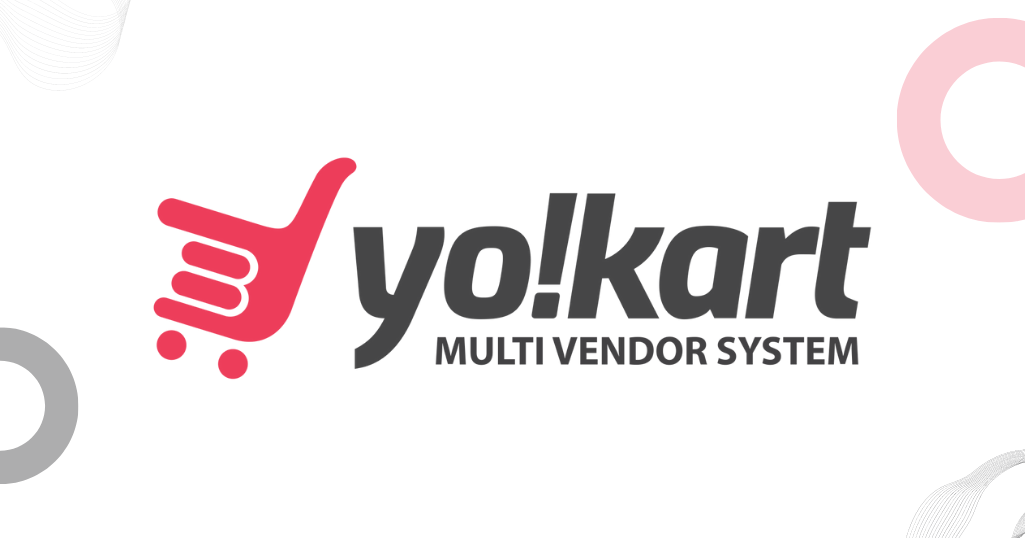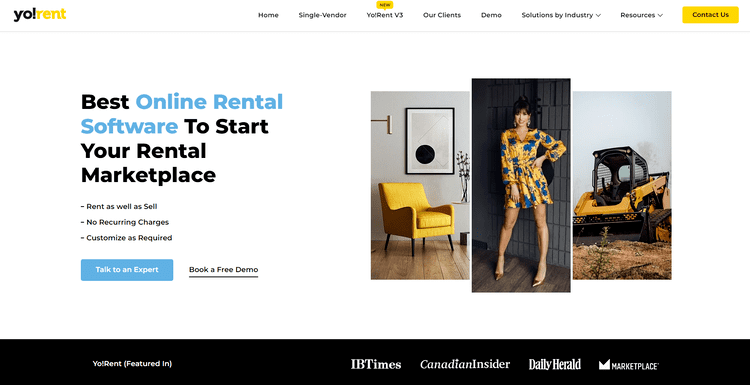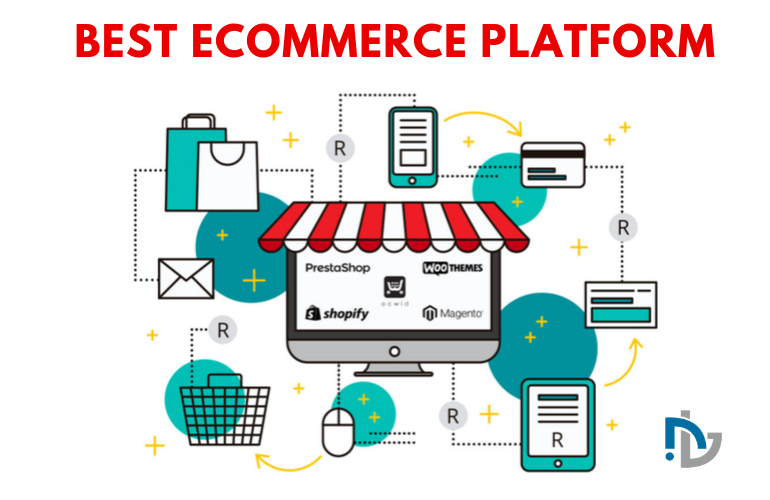5 Best Ecommerce Platforms That You Should Not Overlook In 2024
- 1 5 Best Ecommerce Platforms
- 1.1 Yo! Kart
- 1.2 Yo! Rent
- 1.3 Magento
- 1.4 Shopify
- 1.5 BigCommerce
- 1.6 WooCommerce
- 1.7 Wix
- 2 Summing it up
An eCommerce store is crucial for businesses to survive and thrive in conversion, ROI, and performance. If you are ready to expand your business online, the first question that hammers your mind is how to choose the right platform.
Ecommerce platforms are the best option for entrepreneurs as they manage and handle all Ecommerce operations centrally, from product information and store personalization to online transactions and payments. However, many variables for Ecommerce platforms make the selection process strenuous.
In fierce competition, the decision of the E-commerce platform is critical as the choice will have a long-term impact on the future venture. Analyze which platform provides the functionalities, customization facility, third-party plug-ins integration, and other things that suit your eCommerce store development requirements, in addition to popularity, reputation, customer service, and price.
Again, hundreds of E-Commerce platform options muddy the water. This blog covers your needs by enlisting the top 5 e-commerce platforms that are the cream of the crop, and you can rely on them.
5 Best Ecommerce Platforms
Yo! Kart

The only option on this list is for entrepreneurs or enterprises to build an online marketplace like Amazon. Yo! Kart is a customizable, self-hosted multivendor marketplace platform with industry-specific, out-of-the-box features.
Market sellers can have personalized individual storefronts, highly capable product catalogs, abandoned cart management, and more. The intuitive UI and engaging UX can draw customers to the platform, and features like reviews, favorite products, and advanced search enhance their shopping experience. Moreover, website owners get multiple business APIs pre-integrated to manage eCommerce operations, market, analyze, and have the necessary tools and functionalities to help scale and reach new markets.
The versatile solution is available in packages starting from US $999. These packages include a one-time payment for lifetime ownership, source code ownership, up to one year of technical support, and more.
Additionally, team Yo! Kart also offers end-to-end customization services to give your marketplace a unique identity or include any functionalities and integrations specific to your business.
Yo! Rent

Yo! Rent is available in 40+ countries, with 20+ payment gateways and multilingual functionality to support large-scale eCommerce operations. While Yo! Rent does have sales features and functionalities; its UVPs reside in its dedicated rental features, such as rental security management, late return/cancelation charges, document verification, and product inspection.
With unlimited transactions, listings, and user profiles, Yo! Rent is also fully scalable to support your business from startup to enterprise. Regarding themes and designs, the online rental software has three base industry-specific designs (equipment, fashion, and automobile), which can launch eCommerce businesses in various niches.
Due to its excellence and reliability in facilitating rental operations, Yo! Rent has been featured in top business magazines like The Entrepreneur, Business Insider, Inc., and Forbes.
Magento

Magento powers 12% of all e-commerce sites; to be precise, more than 25,000 active websites use It, and the number is continuously increasing.
The most popular e-commerce platform is versatile and well-renowned for powering brilliant stores. The basic version of Magento is completely free, but the enterprise version comes at a cost, which is highly favored by large-scale businesses. However, it requires developers and programming to build the store as it won’t offer drag-and-drop functionalities. The great community of third-party developers and tools to develop complex functionality is an add-on.
Shopify

The largest e-commerce website development platform boasts ease of use and a proven record of success with worldwide businesses. The DIY or self-service function is the main reason companies leverage the platform.
Under the self-service umbrella, businesses can quickly launch an E-store as it facilitates a high degree of customization without spending bundles. Shopify Plus is the enterprise version that allows companies to scale when they require advanced features and customization choices. It’s pricey but worth it.
BigCommerce

Since 2009, the privately owned platform has been a software-as-a-service (SaaS) that has powered nearly 20,000 stores worldwide. The extensive list of features and breadth of customization facilities have appealed to leading players like Toyota and Natori, who have leveraged the platform to build online stores.
As you never buy a car before the test drive, BigCommerce also facilitates a 15-day trial for businesses willing to use the platform. The comprehensive analytics, top-notch security, order fulfillment partnership, and range of third-party integrations make the platform worth considering despite having a steep learning curve.
WooCommerce

The WordPress ecommerce plug-in allows businesses to build an online store on top of it. Its simplicity, customizability, and extensibility—with 330 extensions, 1000 plug-ins, premium themes, and several paid add-ons—make it a perfect fit for customers from startups to SMBs.
You cannot title it the best platform; instead, it’s a lightweight solution that allows WordPress bloggers to monetize by building an E-commerce store without buying a new domain, creating content from scratch, or worrying about driving traffic.
Wix

Wix is the best choice for beginners who want to build a website without much concern for the store’s look and feel, advanced features, customizations, and scaling.
It allows you to display products, manage inventory, handle orders, and facilitate online transactions right in the store. You don’t need to spend a single penny to display an unlimited number of products with a maximum of 15 images, price, and size and color variations. When you need extra features, the premium plan is preferable.
Summing it up
Ecommerce platforms are the most sought-after services that allow businesses to create an online store and showcase their offerings to customers. Finally, you have limited choices when selecting the one that meets your business priorities and needs. First, create a list of requirements and then match them against the platforms to make the proper selection.
We have separated the trash from the wheat, and now it’s your turn to choose the platform that meets your varied online business needs. All the best!

















